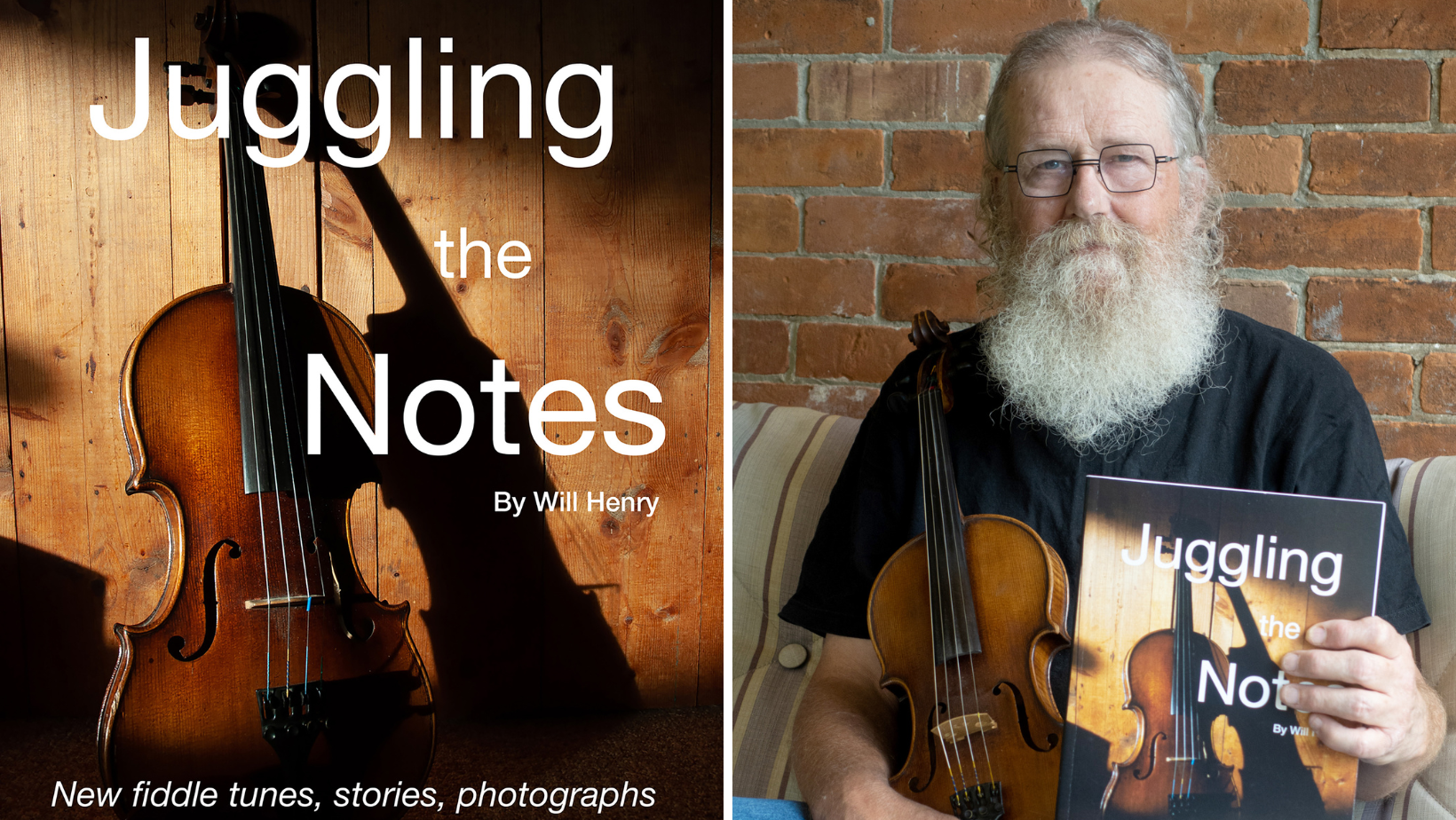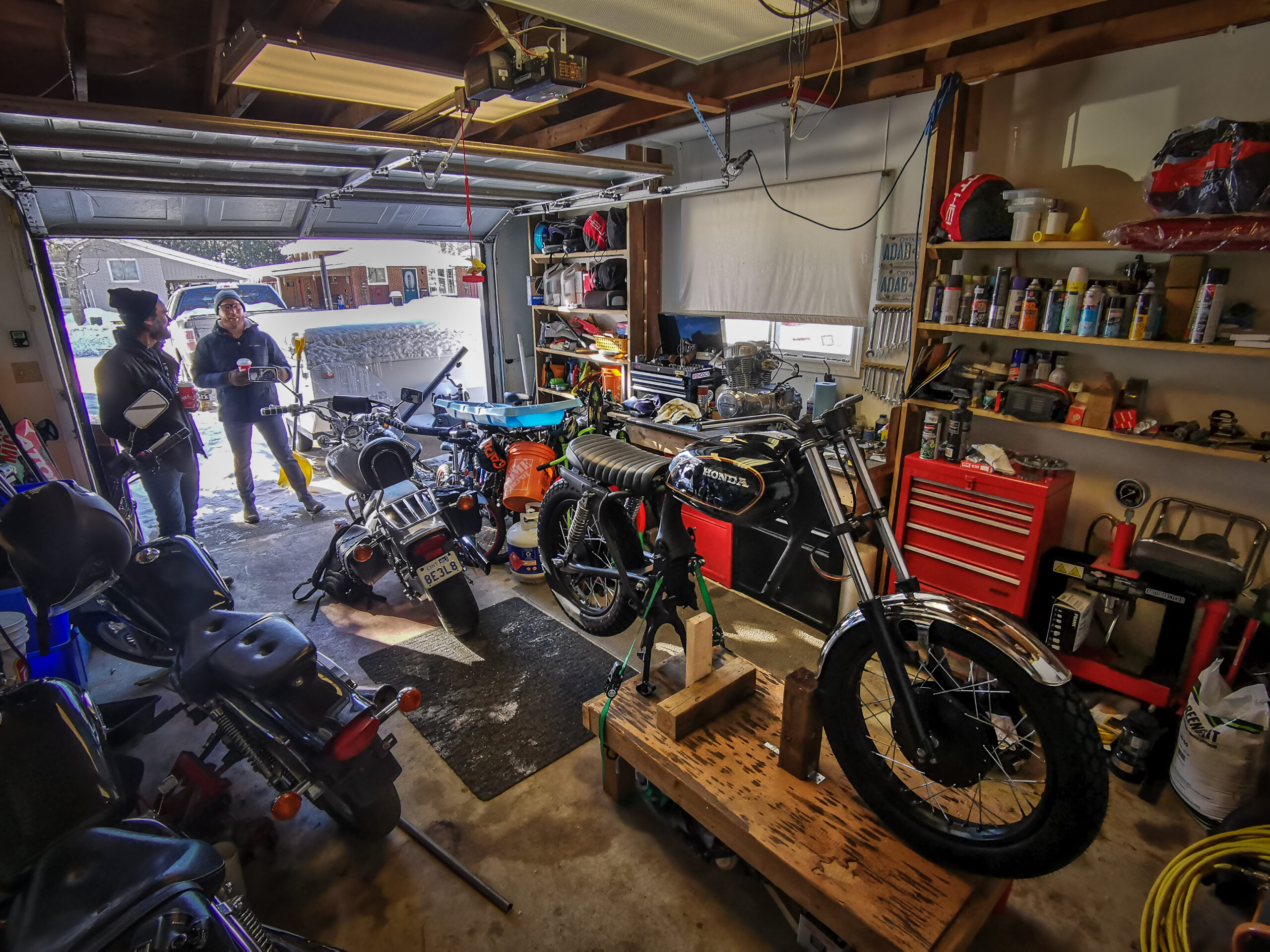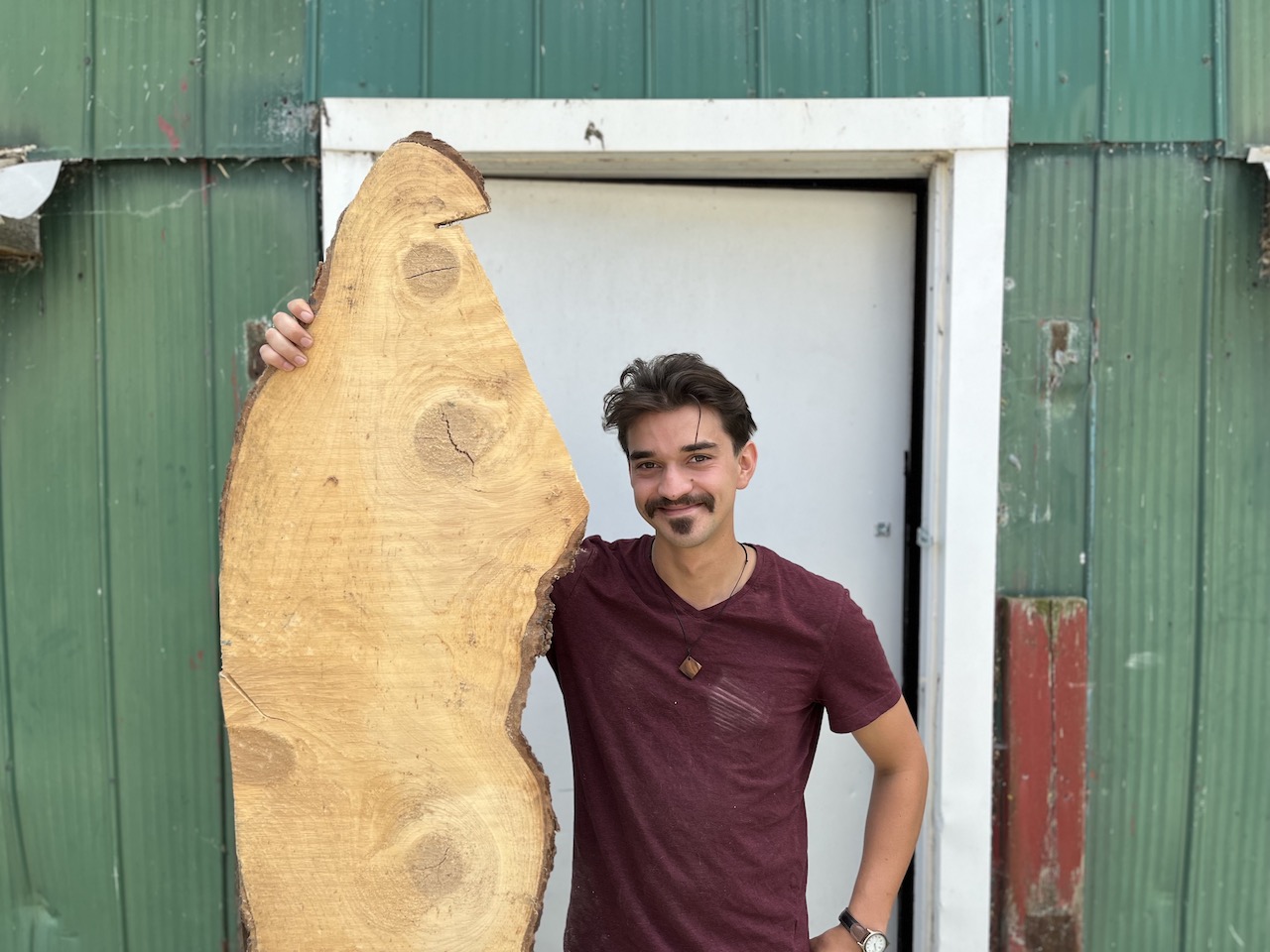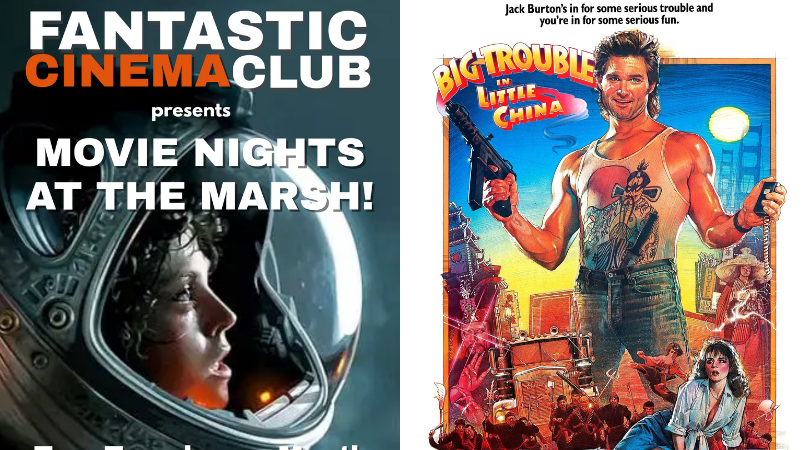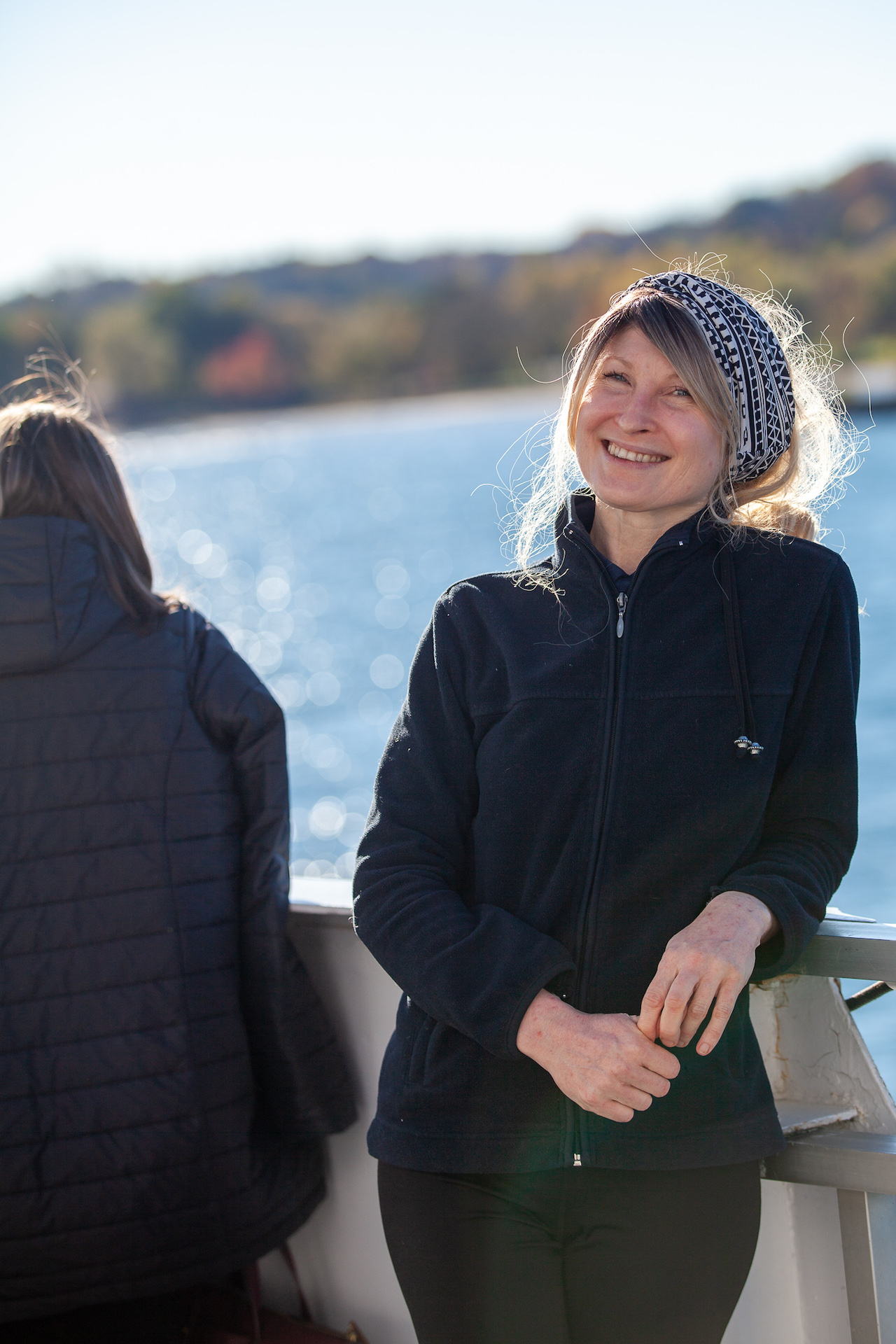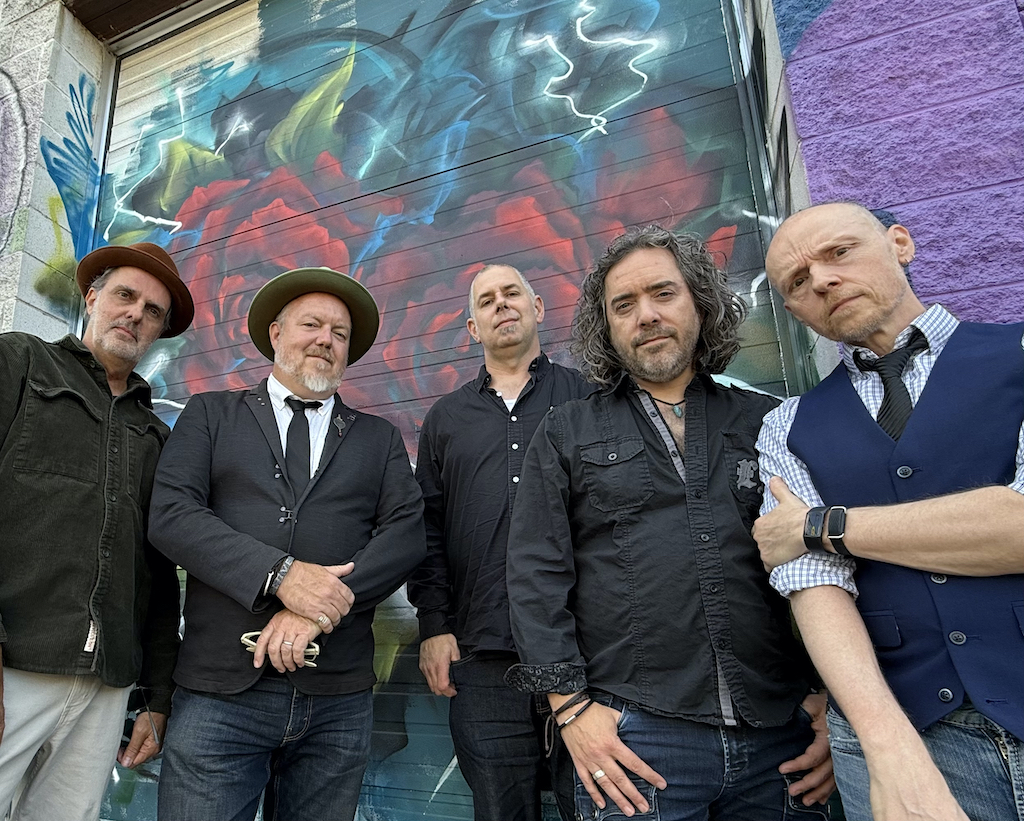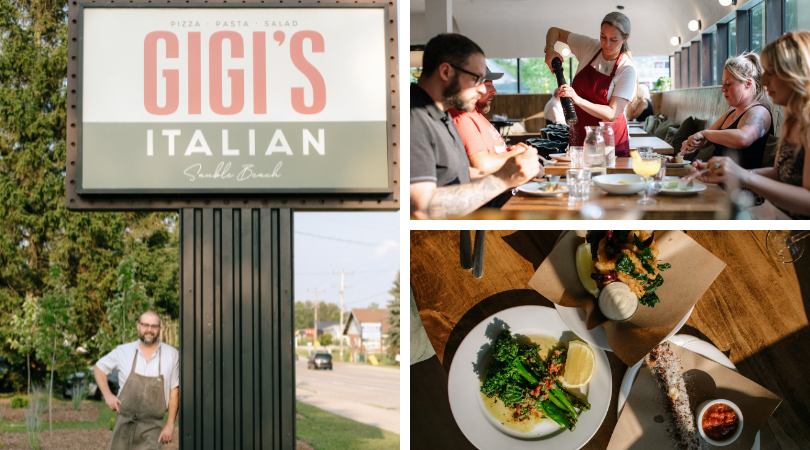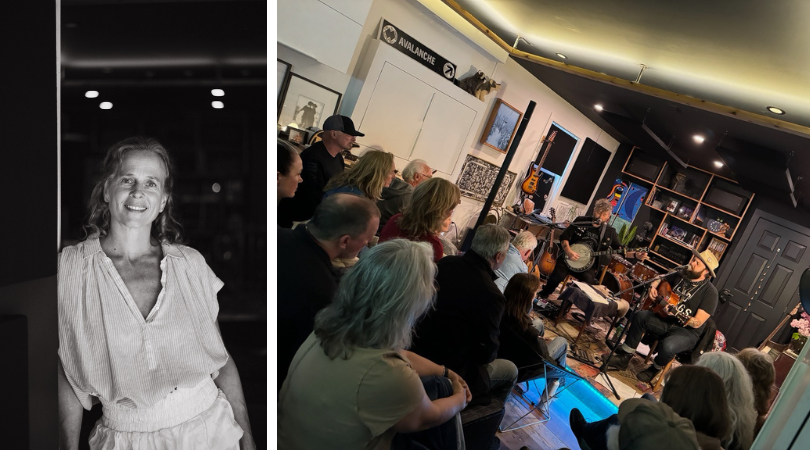I was taking in a show at Heartwood Concert Hall recently, just sitting enjoying my beverage, when my girlfriend leaned over and asked me what the difference was between a violin and a fiddle. I put my beverage down and leaned back to answer her that I didn’t think there was a difference, but I had to think about it. Was there, in fact, a difference between a fiddle and a violin?
Then I remembered the book sitting on my coffee table at home that I hadn’t cracked into yet: Juggling the Notes by local fiddle player Will Henry. Surely my answer would be found there. (And yes, I’m aware I could have just Googled it, but I’m a little old fashioned sometimes and will trade the interweb for a good book).
We had invited Scatter the Cats to come play our Highfive space and it was the busiest Friday Social we’ve had at the Cowork and Social space. Leave it to Traditional music to bring people out on a Friday afternoon. It was on this occasion I acquired the book from Henry and also where I met a number of the musicians who are mentioned in his book: Dan McGee, Frank Francalanza, and Bob Robins.
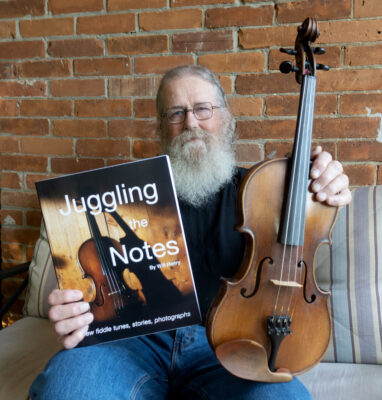
Prior to the performance, I was corrected that a mandolin is not a fiddle. So, between a violin, a mandolin, and a fiddle, it’s clear I’ve got some learning to do. And Juggling the Notes is a great place to start. The book is scattered (like cats) with notation for all the original fiddle tunes Henry has written, as well as photos and stories from his years playing alongside his fellow musicians.
I wasn’t looking for fiddle tunes (I’ve established I don’t play), but anyone who plays will get a lot out of it as there are roughly eighty notations (think of how much fun the Beckett family will have with this book). For me, Henry’s introduction was in line with what I was after: “this is a bit of my story about chasing the tunes and juggling the notes” which is what interested me the most. I like stories, especially local ones involving music. It’s why I’ve enjoyed books by Larry Jensen and Tim Harrison over the years.
And while I didn’t exactly learn the connection between instruments, I learned about other connections. For example, the link between fiddling and dancing is made clear in this work. “Two sides of the same coin,” as Henry puts it.
Another strong connection that’s made in this book is how much traditional music ties cultures together: from Cuba to Canada to Ireland, the fiddle unites people of many nations. But of course, this book is more concerned with the smaller communities in Ontario where Henry has “fussed with [the fiddle] off and on for most of [his] adult life”: Goderich, Durham, and Owen Sound.
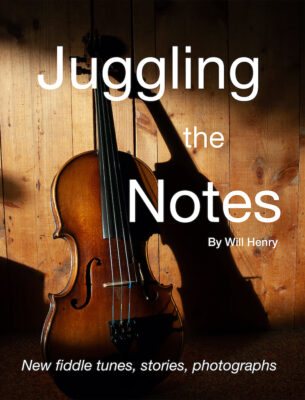
“Some places just seem to ooze music,” he says referring to Dan McGee’s woodworking shop, but it’s symbolic for the area as a whole. Grey Bruce oozes music and Henry is an important part of that beautiful ooze. The stories from this book are a testament to his part, and the people he mentions along the way are part and parcel.
He pays tribute to the fiddlers who came before him, like Carl Grexton, and also honours the contributions that Metis fiddle playing has made in Canada. “Until I heard Metis fiddling…I simply had not heard a fiddle really played,” Henry declares.
Alongside the colourful stories are pages of photos from “long years pointing the camera at musicians and dancers” as Henry puts it.
His festival experience covers everything from the Goderich Celtic Festival to Summerfolk to CeltFest in Cuba and of course Ireland where he received a harsh lesson in the Irish Fiddle (I’m starting to think the difference is in howthe instrument is actually played).
He closes with a song called Dancing Again, which is meant to “chase away the Covid 19 blues” and beckon the return of live music. It seems to have worked since the Cats have enjoyed playing live shows again. I watched a number of audience members take to the dance floor that Friday evening.
So, in the end I didn’t discern the difference between a fiddle and a violin and that’s really my own fault for not knowing it. But I’m still going to ask Will Henry the next time I see him. I won’t succumb to the Google machine on this one. Some things are just better left the old-fashioned way. Like fiddle music. It’s got a long tradition and that’s what makes it so darn good.
Juggling the Notes is available for $35 at both The Ginger Press Bookshop and Coffee Bar, and at the Owen Sound Long & McQuade Musical Instruments, where Henry teaches traditional fiddle tunes and technique as well as five-string banjo. You can also send an email request at willihenry@gmail.com
Written by Jesse Wilkinson
Photos provided by Will Henry

